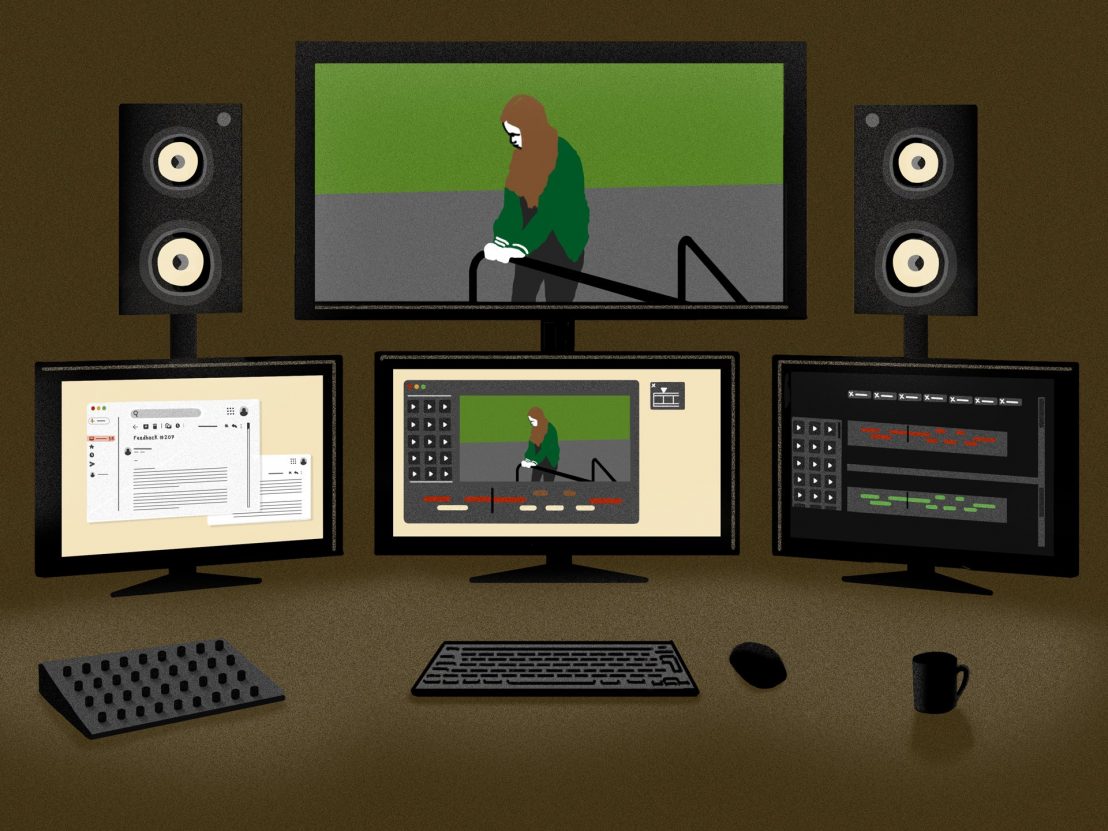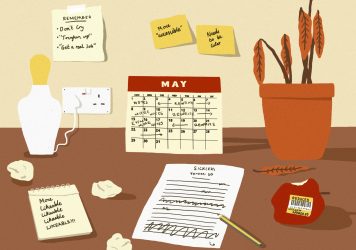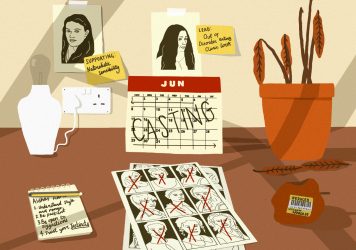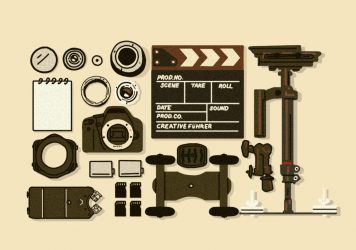
Lucy Brydon talks through putting the finishing touches on her debut feature, Body of Water.
So, you’ve shot your first feature film. You mad bastard. After spending several days in a dark room with aching legs, unable to move, with just enough mental capacity to digest television shows like episodes of 2007 Ramsay’s Kitchen Nightmares, the neural pathways gradually, slowly begin to start firing again. You regenerate. Then, and only then, can you proceed to the next – and I would argue the most fun – part of the process. Post-production. That magical land where everything can be fixed.
David Lynch says when he’s editing, it’s like a man in the other room has all the pieces of the film and they’re throwing them at him in an abstract way for him to make sense out of. It’s a cliché, but it’s true, that editing is where much of the authoring and story wizardry is done. Countless filmic turds have been polished into gold in the hands of a talented editor.
I’m personally almost never as excited about a film as when I’m messing around in the edit – except probably during the idea germination stages months or years previously. Feeling things out. Fucking it all up in the safe confines of an edit suite. It’s a world away from the chaos and intensity of a set. Figuring out what works, what doesn’t, what cool things you got that you never anticipated. What seemed great on the page and in the room not quite fitting, but finding other linearity.
Because our editor Erline O’Donovan-Clarke started a first edit during production, as is common, she had a complete rough cut finished by the first day I sat in with her. To be honest, it almost felt too quick, as I was still processing the intensity of the shoot
The first draft wasn’t quite in line with the pace and shot choices I had imagined but gave me a good indication of Erline’s instincts as it was our first time working together. It was a revelation – and a relief – to know that, whatever happened, the film actually worked. As Erline explains, “Every director is different, likes different things, describes things differently, and so there is always a period at the start of each project when the director and I get to know each other, when I get a feel for their taste, style and sensibilities.”
After discussing and going back to references, and then starting the process of unpicking the film scene by scene and interrogating every single choice, we got to a point where we shared a common sense of what the language of the film was. This is a necessary part of establishing the editor-director relationship.
I took the rushes home on a drive with me and re-watched them. I found it helpful to make rough scratch edits myself which we looked at together in the suite. Once an autodidact, always an autodidact. To me, in a sense, film editing feels similar to writing – I love the solitude and quiet of it.
After numerous feedback rounds with Executives from Film London, the BFI and BBC Films, who mostly had really insightful and helpful notes but occasionally left us feeling like the quizzical emoji, the team had an approved cut and could move on. I’ve been told much gin was consumed on that day. I do not recall.
Sound design was taken care of by Blue Fox Studios’ Carine Koleilat and music was composed by Rory Attwell who worked together synchronously on both parts of the process. As Carine points out, sound design, “Should be developed and explored from the second the script is green lit. Exploring the sonic world of a story will make a realm more vivid and impactful to the viewer. Understanding how sound can affect the story gives filmmakers another set of tools to make their stories more effective, stand out and have a wider reach.”
Carine needed to clean up the dialogue, enhance the pre-recorded lines, edit, record ADR and make sure we had a balanced mix between dialogue, music and effects. In terms of music, as Rory says, “The brief wasn’t super strict and overly-specific, essentially I was given a reasonably free reign to interpret the film through my compositions, watching the film numerous times, and writing and adapting to enrich the storytelling layers and bring deeper emotional resonance.”
Colourist Jodie Davidson at Technicolor took care of grade, and the support from the Technicolor London team was monumentally valuable in pushing the film through to its final stages (with special props due to Technicolor Producer, Abs MacKenzie, for going above and beyond). After a look-set day with my DoP, Darran, the three of us collaborated on every single shot of the film over a period of five days.
Sitting back and watching the complete iteration of the film, which I only did for the first time some weeks ago, was intensely moving. Of course, you always have niggles. But part of the process is also letting go. And there is beauty in that.
Body of Water screens at this year’s Glasgow Film Festival on Thursday 27 and Friday 28 February. For more info and to book tickets visit glasgowfilm.org
Published 27 Feb 2020

By Lucy Brydon
In the first part of a new series, Lucy Brydon talks us through the early stages of her debut feature.

By Lucy Brydon
With her debut feature Sick(er) taking shape, Lucy Brydon discusses the importance of trusting your gut.

By Lucy Brydon
Lucy Brydon reflects on the ups and downs of shooting her low-budget debut feature Sick(er).